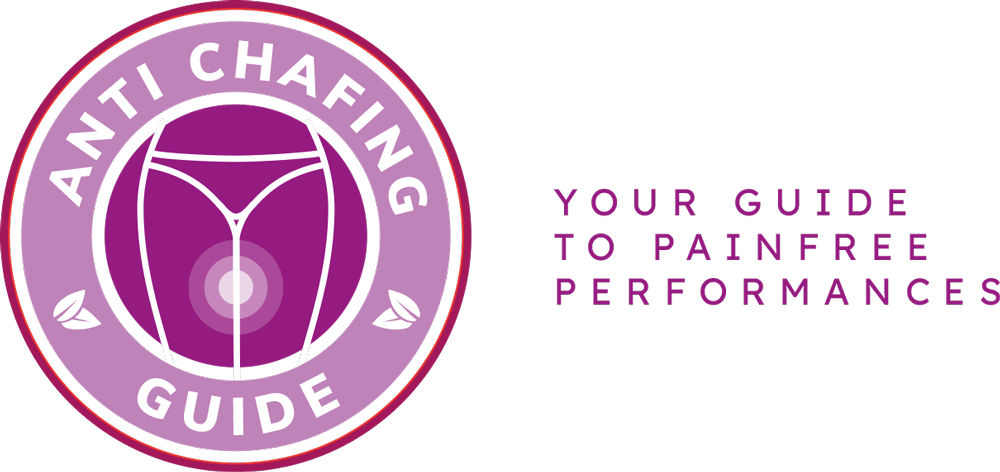Banish Chafing Woes for Good: Dermatologist-Approved Solutions to Prevent Chafing
Are you tired of dealing with the discomfort and irritation caused by chafing? Look no further! In this article, we will explore effective solutions to prevent chafing, as recommended by dermatologists. Say goodbye to chafing and hello to smooth, irritation-free skin!
Choosing the Right Clothing:
- Opt for moisture-wicking fabrics like cotton or synthetic blends to keep your skin dry and reduce friction.
- Avoid tight-fitting clothes that can rub against your skin and cause chafing. Opt for looser, breathable options instead.
- Consider using anti-chafing garments, such as compression shorts or bike shorts, that provide an extra layer of protection.
Skincare Tips for Chafing Prevention:
- Keep your skin moisturized with a gentle, fragrance-free lotion to prevent dryness and reduce friction.
- Apply a protective barrier cream or ointment, such as petroleum jelly or zinc oxide, to areas prone to chafing.
- Consider using talcum powder or cornstarch to absorb moisture and reduce friction in areas where skin rubs together.
By following these dermatologist-approved solutions, you can effectively prevent chafing and enjoy a comfortable, chafe-free experience. Don’t let chafing hold you back any longer!
Choosing the Right Clothing
Choosing the right clothing is essential to prevent chafing and ensure maximum comfort. By selecting the appropriate materials and styles, you can effectively minimize friction and irritation on your skin.
When it comes to materials, opt for breathable fabrics that allow air circulation and moisture-wicking properties. Natural fibers like cotton and bamboo are excellent choices as they are soft, lightweight, and gentle on the skin. Avoid synthetic materials such as polyester, which can trap heat and moisture, leading to increased friction and chafing.
In terms of style, consider wearing loose-fitting clothing that allows for better airflow and reduces friction. Tight clothes, especially in areas prone to chafing like the thighs and underarms, can exacerbate the problem. Additionally, choose garments with flat seams or seamless construction to minimize rubbing against the skin.
Remember, prevention is key when it comes to chafing. By carefully selecting the right clothing materials and styles, you can significantly reduce the risk of discomfort and irritation. Take the time to choose wisely, and your skin will thank you!
Skincare Tips for Chafing Prevention
When it comes to preventing chafing, taking care of your skin is crucial. Dermatologists recommend a few skincare tips and products that can help protect your skin from chafing and soothe any existing irritation.
First and foremost, it’s important to keep your skin moisturized. Dry skin is more prone to chafing, so make sure to apply a moisturizer regularly. Look for moisturizers that are specifically formulated for sensitive skin and contain ingredients like aloe vera or shea butter, which can provide soothing relief.
In addition to moisturizing, using a barrier cream can also be beneficial. Barrier creams create a protective layer on the skin, reducing friction and preventing chafing. Look for creams that contain ingredients like zinc oxide or dimethicone, as they are known to be effective in preventing chafing.
Another skincare tip is to avoid using harsh soaps or cleansers that can strip your skin of its natural oils. Opt for gentle, fragrance-free cleansers that are suitable for sensitive skin. Additionally, after showering or bathing, make sure to pat your skin dry instead of rubbing it vigorously, as this can further irritate the skin.
Lastly, if you already have chafed skin, using a soothing ointment or cream can help alleviate the discomfort. Look for products that contain ingredients like calendula or chamomile, known for their anti-inflammatory properties. Applying these creams to the affected areas can help reduce redness and promote healing.
By following these dermatologist-approved skincare tips and using the right products, you can effectively protect your skin from chafing and find relief from any existing irritation. Remember, taking care of your skin is essential for overall comfort and well-being.
Frequently Asked Questions
- Q: What causes chafing?
A: Chafing is often caused by friction between the skin and clothing, especially in areas where there is repetitive motion or where skin rubs against skin. It can also occur due to excessive moisture or sweat.
- Q: How can I prevent chafing?
A: There are several ways to prevent chafing. Firstly, choose clothing that is made of breathable and moisture-wicking fabrics. Additionally, applying a lubricating product or anti-chafing balm to the areas prone to chafing can help reduce friction. Keeping your skin clean and dry, and using talcum powder or cornstarch, can also minimize the risk of chafing.
- Q: Are there any specific clothing materials that can help prevent chafing?
A: Yes, certain clothing materials can help prevent chafing. Opt for moisture-wicking fabrics such as polyester or nylon blends, which can draw sweat away from the skin and reduce friction. Avoid wearing rough or abrasive materials like wool, as they can exacerbate chafing.
- Q: Can skincare products help prevent chafing?
A: Absolutely! Using skincare products specifically designed to prevent chafing can be highly effective. Look for creams or balms that contain ingredients like aloe vera, shea butter, or petroleum jelly, as they can provide a protective barrier and soothe irritated skin. Regularly moisturizing your skin can also improve its resilience and reduce the likelihood of chafing.
- Q: What should I do if I already have chafed skin?
A: If you already have chafed skin, it’s important to keep the affected area clean and dry. Avoid further irritation by wearing loose-fitting clothing and applying a gentle, healing ointment or cream. If the chafed skin becomes infected or does not improve within a few days, it’s best to consult a dermatologist for further evaluation and treatment.


Keith is originally from Truckton, Colorado. The 54-year-old cared for his overweight wife for many years. Keitch is also a freelance editor at antichafing.net and supports the team as a competent advisor. In his spare time Keith enjoys reading books, visiting his homeland and is a passionate product tester for well-known manufacturers.

